James Holmes guilty of Batman shooting: will he face death?
Jurors reject Aurora cinema shooter's claim that he was not guilty by reason of insanity
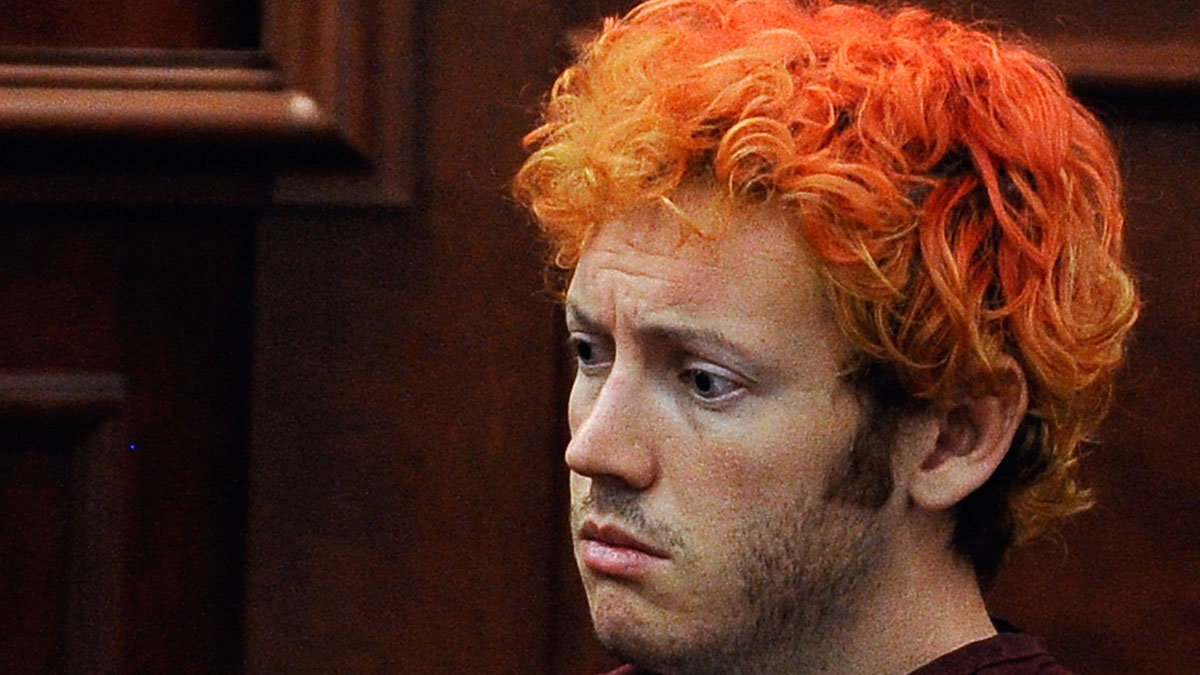
A free daily email with the biggest news stories of the day – and the best features from TheWeek.com
You are now subscribed
Your newsletter sign-up was successful
James Holmes, who opened fire on an Aurora cinema during a midnight screening of The Dark Knight Rises, has been found guilty of 24 counts of first-degree murder – two for each of his 12 victims.
The former neuroscience student, now 27, had pleaded not guilty to 165 charges by reason of insanity. But the jury rejected his defence and also convicted him for 140 counts of attempted murder and one count of possessing explosives.
Holmes set off tear gas grenades and shot at the audience with multiple firearms during the attack in July 2012, killing 12 people and wounding 70 others. His youngest murder victim was six-year-old Veronica Moser-Sullivan, who was hit four times. A four-month-old baby was also injured.
The Week
Escape your echo chamber. Get the facts behind the news, plus analysis from multiple perspectives.

Sign up for The Week's Free Newsletters
From our morning news briefing to a weekly Good News Newsletter, get the best of The Week delivered directly to your inbox.
From our morning news briefing to a weekly Good News Newsletter, get the best of The Week delivered directly to your inbox.
Nearly 250 witnesses, including survivors, gave evidence during the 47-day trial and 14,000 photographs were presented to the jury. Four psychiatrists agreed that Holmes's mental illness had led to the shooting, but the prosecution argued that he still knew right from wrong.
Arapahoe County District Attorney George Brauchler said Holmes was "sane beyond a reasonable doubt", pointing out that he had bought his ticket for the Batman film 12 days before the attack on 19 July. He walked into the cinema with the other audience members, but then walked out through a rear door and returned wearing a ballistic helmet, a gas mask, black gloves and protective gear for his legs, throat and groin.
A sentencing hearing is expected to begin next week, when the same jury could be asked to decide if Holmes should be committed to a state mental hospital indefinitely or face the death penalty.
Some survivors and victims' family members have said the death penalty is the only acceptable punishment. However, Christian Science Monitor says there has been a "growing ambivalence" towards the death penalty in Colorado. Only one person has been executed since 1976 in the state and only three people are currently on death row.
A free daily email with the biggest news stories of the day – and the best features from TheWeek.com
The hearing comes two months after Boston bomber Dzhokhar Tsarnaev was sentenced to death after he and his brother Tamerlan detonated two bombs at the 2013 Boston Marathon, killing three people and wounding 260 others.
James Holmes booby-trapped flat before Batman shooting
06 May
Jurors in the Aurora shooting trial have heard how gunman James Holmes booby-trapped his own apartment with numerous explosives, including jars of flammable liquid and a homemade tripwire.
The former neuroscience student is accused of killing 12 people and injuring 70 in July 2012, when he set off tear gas grenades and shot at the audience with multiple firearms during a midnight screening of The Dark Knight Rises.
Holmes has pleaded not guilty by reason of insanity to 165 charges of murder, attempted murder and explosives offenses.
After three years of delays, prosecutors are expected to push for the death sentence if they can persuade the jury Holmes was sane at the time.
Their court documents claim Holmes began a "a detailed and complex plan to obtain firearms, ammunition, a tear-gas grenade, body armour, a gas mask and a ballistic helmet" after he failed his graduate oral board exams at the University of Colorado Denver.
His defence will try to prove that he was insane at the time and that the planning was also part of his "severe mental illness".
Under Colorado law, the burden of proof lies with the prosecution, which must show that Holmes knew right from wrong when he opened fire.
Jury selection has taken more than three months after more than 9,000 potential jurors were called. Of these, 12 have been selected, as well as 12 back-up jurors, including one survivor of the Columbine High School massacre in 1999.
This is what we have heard so far:
Prosecution presents 'door of horror'
District attorney George Brauchler opened his case with a photograph of the emergency exit door through which Holmes entered the cinema. "Through this door is horror," he told the jury. "Through this door is bullets, blood, brains and bodies." The prosecution painted Holmes as a man who had lost his career, love life and purpose before planning his "sinister" attack. The court was also shown images of the victims, including six-year-old Veronica Moser-Sullivan, who was hit four times. "He tried to murder a theatre full of people to make himself feel better and because he thought it would increase his self-worth," said Brauchler. The prosecution also revealed that two court-ordered psychiatric exams had found Holmes to be sane.
Schizophrenia defence
The defence has claimed that Holmes suffers from schizophrenia and had experienced a break with reality in the months before the attack. Jurors heard that he had attempted suicide at the age of 11 and taken up neuroscience to find out what was wrong with his brain. In prison, since his arrest, he believed US President Barack Obama was talking to him through a television, ran head first into a wall and, on one occasion, licked the walls. "This is about a brain disease, a diseased mind, and about the power of psychotic delusion. The reality is mental illness. There's no evidence he's faking anything," said his lawyer Daniel King. The court was also shown a series of selfie photographs taken just before the massacre. Holmes could be seen wearing opaque black contact lenses, sticking out his tongue and holding a gun.
Survivors recall heartbreak and horror
Half-empty tissue boxes littered the floor of the courtroom after dozens of survivors and first responders told stories of "heartbreak, revulsion and horror", reports the Aurora Sentinel. Victims described how the hiss of a gas canister came just as Catwoman was stealing pearls from a safe in the film. Then the gunshots and screaming began. The court was shown photographs of bodies wedged between rows of seats and sprawled on the floor amid popcorn and spent ammunition. One officer said the stench of faecal matter mixed with blood, urine and tear gas was "overwhelming". Other officers, stationed to protect the crime scene overnight, were haunted by the continuous ringing of mobile phones, dropped by victims onto the bloodied floor.
First police interview shown
The jury was played a video recording of detectives interviewing Holmes two hours after the attack. "There weren't any children hurt, were there?" Holmes is heard asking police. They do not answer him directly, but it would later emerge that six-year-old Moser-Sullivan was among the 12 people who died. Her mother miscarried a week after the attack, and the youngest person injured was just four months old. In the recording, Holmes is asked if he needs anything, to which he replies "oxygen", and when asked how to spell "Holmes", he answers "like Sherlock". At one point he attempts to flip an empty cup onto the top of a water bottle, like a game of hoopla.
Booby-trapped flat
The court heard how Holmes' flat was rigged with improvised explosive devices, including jars of flammable liquid and fire-accelerating chemical powder sprinkled on the floor. A fishing line connected the front door to a thermos of glycerin sitting above a frying pan full of potassium permanganate – which would have caused an explosion if the tripwire was triggered. Holmes had set very loud music to play in his flat, hoping his neighbours would call the police. He had also linked explosives to a remote control unit for a toy car, left next to a nearby dumpster. An FBI bomb technician told jurors that if anyone had tried to play with the toy car and remote, the apartment would have "exploded".
Batman massacre: date set for James Holmes murder trial
24 March
Opening statements in the Batman massacre trial have been scheduled for 27 April, at least a month earlier than planned.
James Holmes, now 27, is accused of killing 12 people in July 2012 at a midnight cinema screening of The Dark Knight Rises in Aurora, Colorado.
Nine thousand potential jurors, said to be one of the largest pools in US history, were summoned for the case in January, with jury selection expected to continue until May or June. However, it appears that the court has been whittling down the numbers more quickly than expected.
Holmes has pleaded not guilty by reason of insanity. Once picked, jurors will therefore have to decide whether the defendant was sane when he launched the attack and what sentence he should face if found guilty.
What happened on 20 July 2012?
Just after 12.30am James Eagan Holmes opened fire at a cinema showing a midnight screening of The Dark Knight Rises. He set off tear gas grenades and shot into the audience with multiple firearms, killing 12 people and injuring 70 others. Three male victims died protecting their girlfriends. One woman, who was shot and paralysed, lost both her six-year-old daughter and unborn baby in the attack. In the New York Times, witnesses described a scene of "claustrophobia, panic and blood". It was said to be the deadliest shooting in Colorado since the 1999 massacre at Columbine High School, just 20 miles away.
When Holmes was arrested outside the cinema minutes later, he told police that he had booby-trapped his apartment, forcing an evacuation of five buildings around his home. Officials found 10 gallons of gasoline and more than 30 homemade grenades wired to a control box in his kitchen, testing the skills of bomb squad members charged with clearing it, reported CNN.
What charges does Holmes face?
He faces 166 charges of murder, attempted murder and explosives offenses, and has pleaded not guilty by reason of insanity to them all.
What sentence does he face?
Holmes could face the death penalty if found guilty, although Colorado has only executed one person since capital punishment was reinstated in the 1970s. If jurors decide Holmes is insane, he would be committed indefinitely to the state hospital.
What do we know about James Holmes?
He was born on 13 December 1987 in San Diego County, California and had been studying for a PhD in neuroscience at the University of Colorado, Denver, but was in the process of quitting the course. He was described by those who knew him as intellectually gifted, but quiet and shy. According to the FBI, he had no significant criminal record or links to terrorism.
Holmes was the patient of Dr Lynne Fenton, a university psychiatrist, whom he sent a notebook days before the attack. Authorities seized the package before Fenton received it and some US media claimed it included drawings of a violent attack. In the two months before the Aurora shooting, Holmes legally bought four weapons from local gun shops, as well as 6,000 rounds of ammunition on the internet. On the night of the attack, his hair had been dyed red and police claimed he identified himself as "The Joker" when he was arrested.
Why have so many jurors been called?
"Nine thousand potential jurors – one of the largest pools in American history – have been summoned for the case," says the Denver Post. "If picked, jurors will be ordered to serve for as long as five straight months, longer than any state criminal trial in memory in Colorado." The court has summoned so many people because of the difficulty expected in appointing an impartial jury for such a high-profile case. Each potential juror will be questioned on their views about topics such as insanity defences and the death penalty.
Why has the trial taken so long to begin?
Disputes about Holmes's state of mind have caused several delays to the trial. Two court-ordered sanity assessments, carried out since his arrest, have produced dozens of hours of video footage and thousands of documents that reportedly show conflicting results.
Judge Carlos Samour Jr and lawyers on both sides have qualified more than 70 prospective jurors for the final stage of selection, but the process has taken its time. "Days are long, with attorneys questioning, at most, 12 people a day, sometimes grilling one person for hours at a time," says Jeff Kandyba at CBS News. "Prospective jurors fight nerves and tears as attorneys press them on their feelings about capital punishment, mental illness and their own personal problems, such as financial hardship or sick relatives."
Kandyba says the process has ranged from the mundane to the surreal. One woman told the court she was a clairvoyant, with the ability to see the "truth of a situation", while another said the death penalty would be appropriate in a "zombie apocalypse" case when people were high on drugs and eating human flesh.
-
 Local elections 2026: where are they and who is expected to win?
Local elections 2026: where are they and who is expected to win?The Explainer Labour is braced for heavy losses and U-turn on postponing some council elections hasn’t helped the party’s prospects
-
 6 of the world’s most accessible destinations
6 of the world’s most accessible destinationsThe Week Recommends Experience all of Berlin, Singapore and Sydney
-
 How the FCC’s ‘equal time’ rule works
How the FCC’s ‘equal time’ rule worksIn the Spotlight The law is at the heart of the Colbert-CBS conflict
-
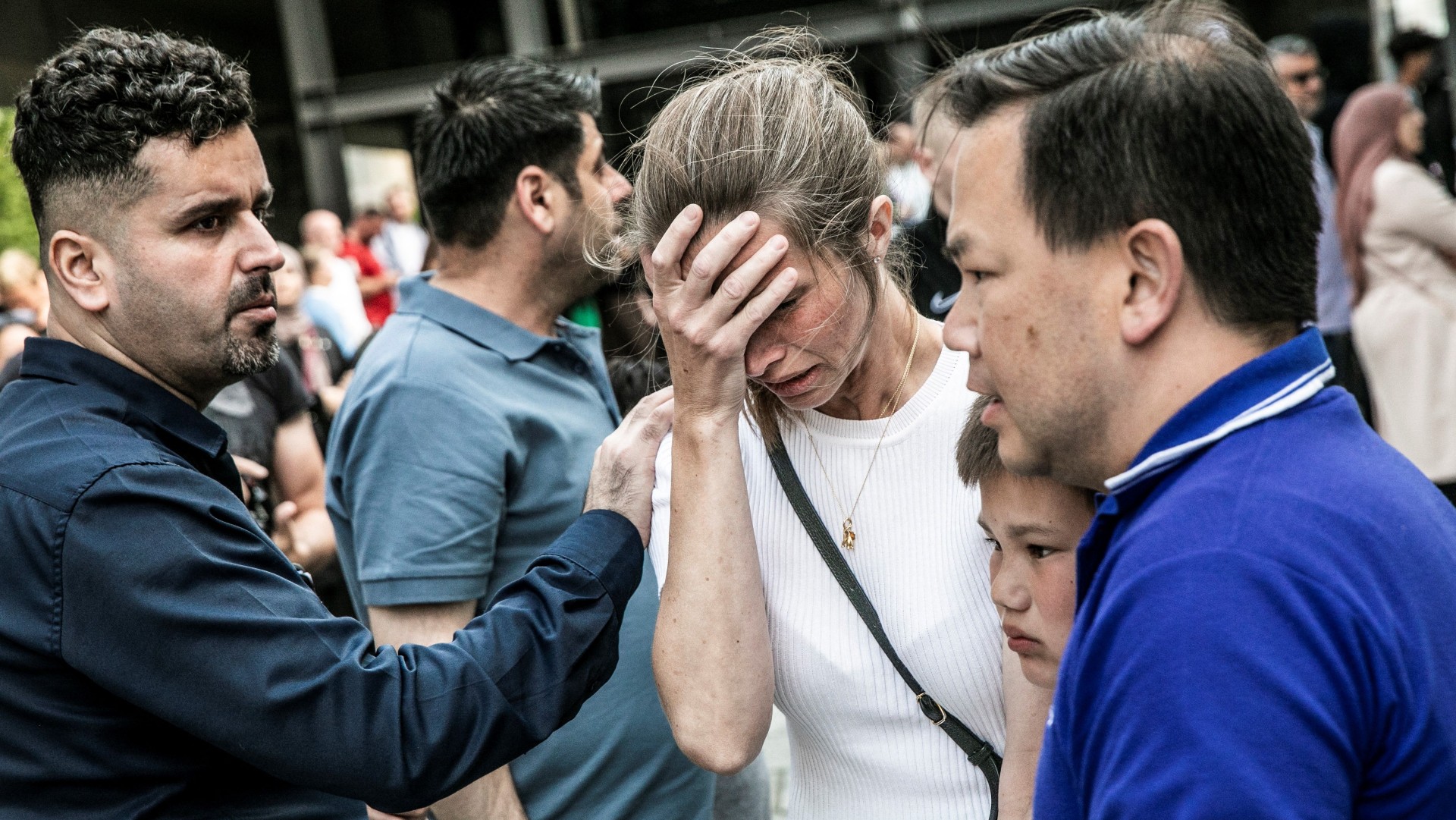 What we know about the Copenhagen mall shooting
What we know about the Copenhagen mall shootingSpeed Read Lone gunman had mental health issues and not thought to have terror motive, police say
-
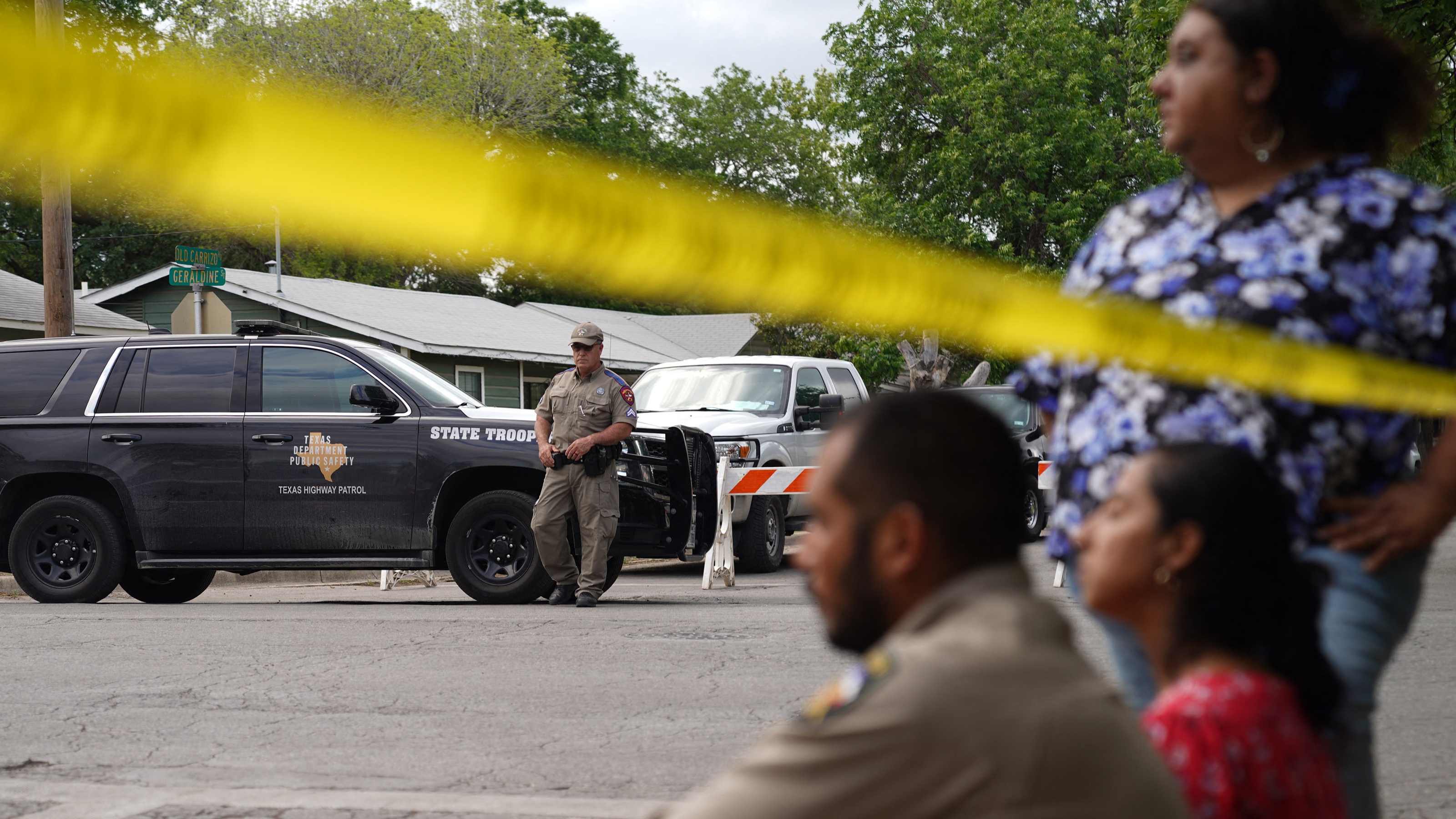 Texas school shooting: parents turn anger on police
Texas school shooting: parents turn anger on policeSpeed Read Officers had to be urged to enter building where gunman killed 21 people
-
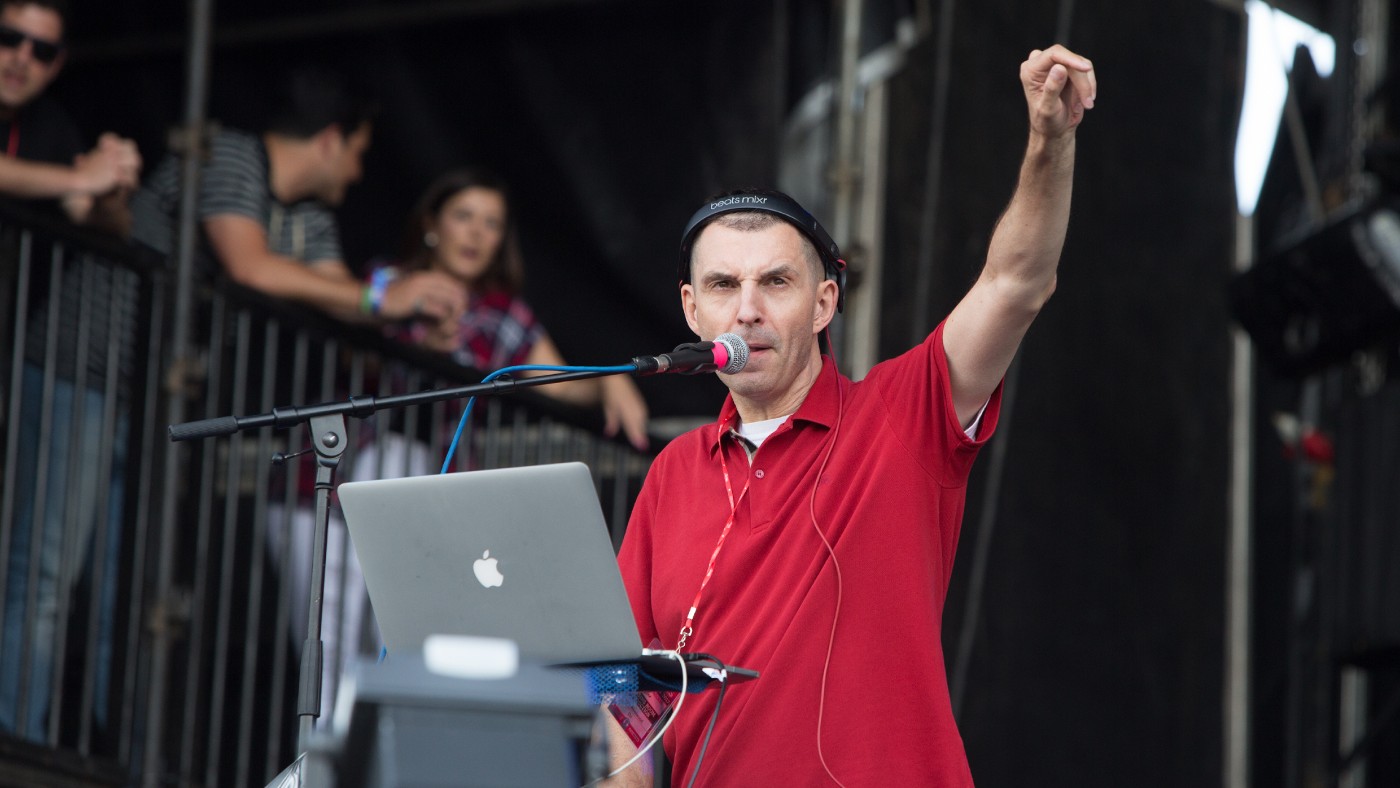 DJ Tim Westwood denies multiple sexual misconduct allegations
DJ Tim Westwood denies multiple sexual misconduct allegationsSpeed Read At least seven women accuse the radio and TV presenter of predatory behaviour dating back three decades
-
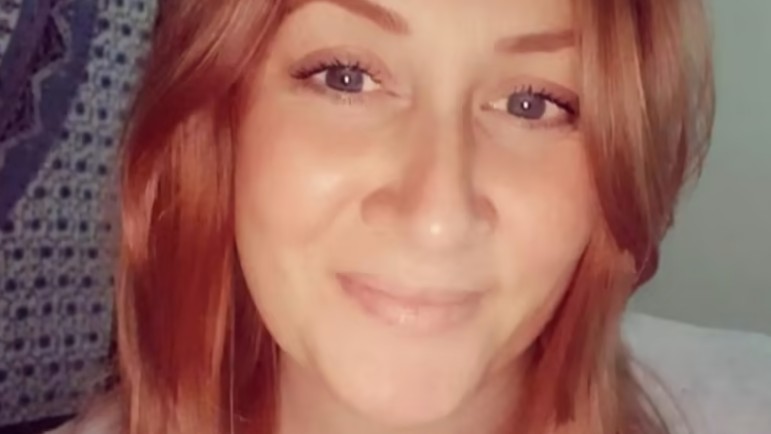 What happened to Katie Kenyon?
What happened to Katie Kenyon?Speed Read Man charged as police search for missing 33-year-old last seen getting into van
-
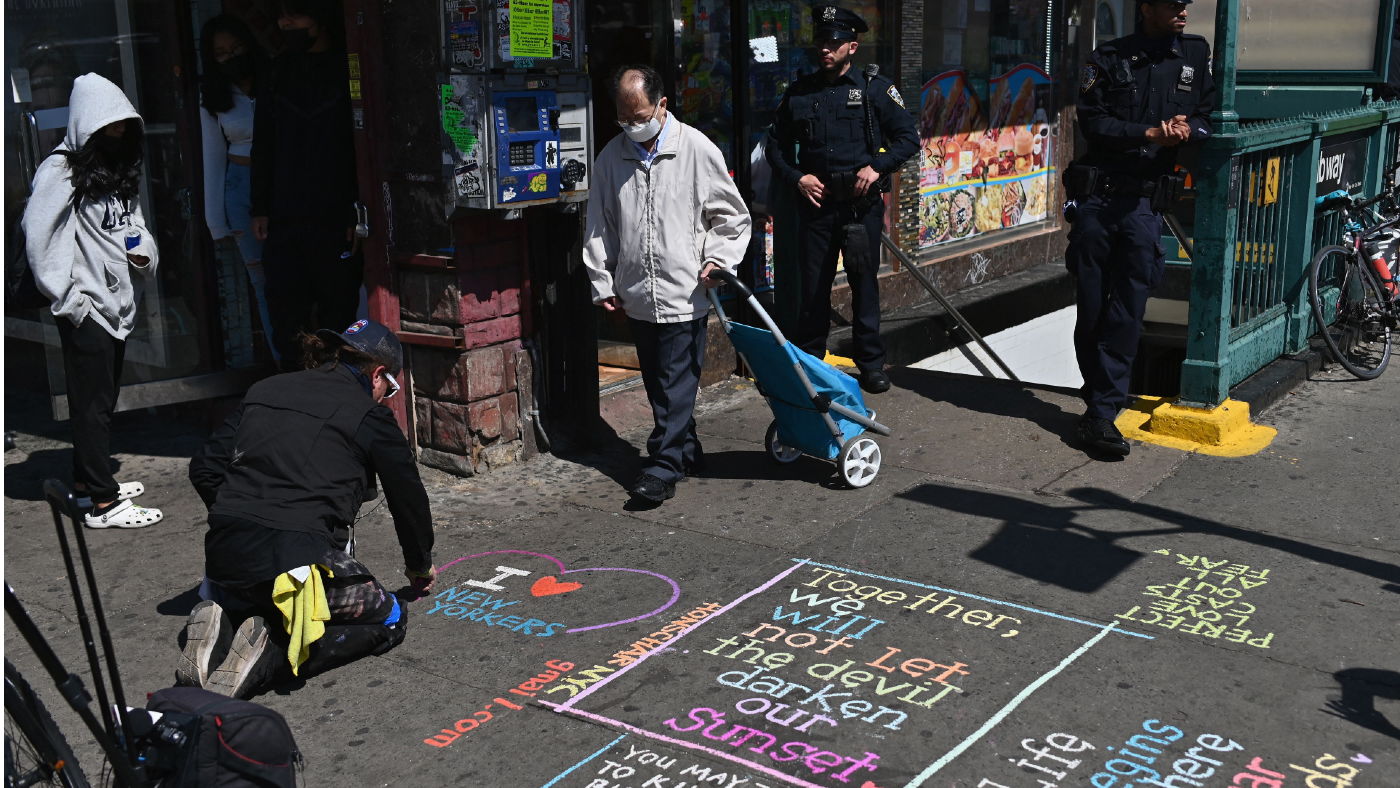 Brooklyn subway shooting: exploring New York’s ‘steep decline in law and order’
Brooklyn subway shooting: exploring New York’s ‘steep decline in law and order’Speed Read Last week, a gunman set off smoke bombs and opened fire on a rush-hour train in the city
-
 How the Capitol attack investigation is splitting the Republicans
How the Capitol attack investigation is splitting the RepublicansSpeed Read Vote to censure two Republican representatives has revealed deep divisions within party
-
 Is sentencing a Nazi sympathiser to read Shakespeare an appropriate punishment?
Is sentencing a Nazi sympathiser to read Shakespeare an appropriate punishment?Speed Read Judge seemed to think introducing student ‘to high culture’ would ‘magically make him a better person’ said The Daily Telegraph
-
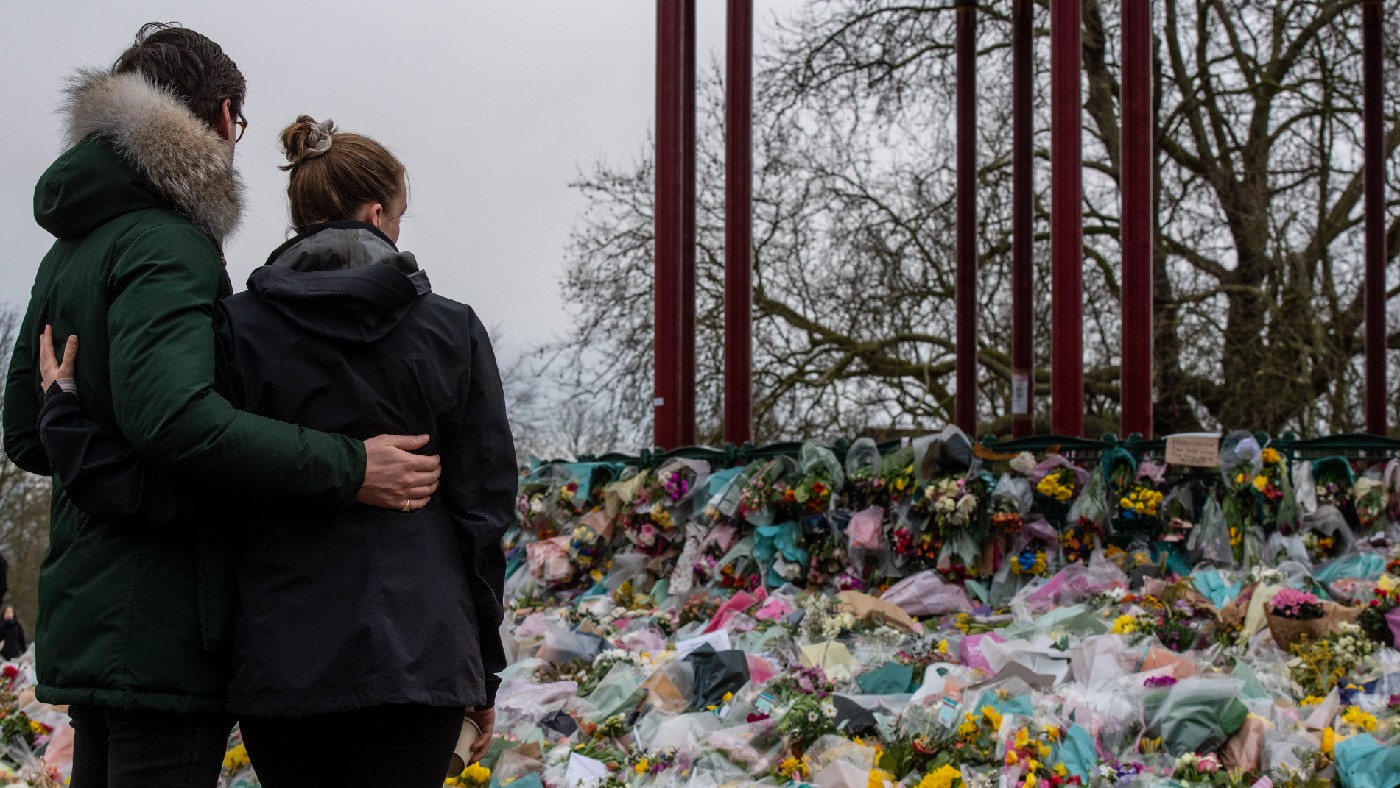 Sarah Everard’s murder: a national reckoning?
Sarah Everard’s murder: a national reckoning?Speed Read Wayne Couzen’s guilty plea doesn’t ‘tidy away the reality of sexual violence’